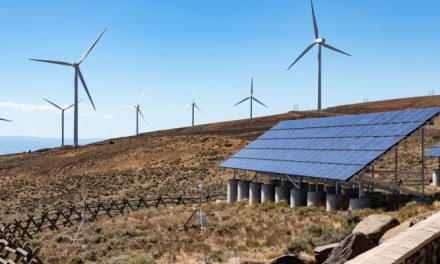
“Beyond Fire: How to achieve electric cooking”

Hamburg — The cost of cooking with renewable electricity is now competitive with the other cooking fuels in most developing countries, concludes a new report called Beyond Fire: How to achieve electric cooking by Hivos and the World Future Council. This is a significant improvement from three years ago when the two organizations first studied this.
Achieving sustainable cooking is one of the great challenges of our time. Cooking with charcoal and firewood sources still accounts for 4 million premature deaths due to indoor air pollution, puts significant strain on already stressed forest resources, and it is the single largest source of greenhouse gas emissions (GHGs).
“For almost two decades we have inadvertently narrowed the debate of clean cooking to just cookstoves. We need to look at the sources of energy and clean fuels,” said Kandeh Yumkella, Parliamentary Leader Sierra Leone, first CEO of Sustainable Energy for All and former UN Special Representative and Director General of UNIDO.
Hivos and the World Future Council (WFC) just released a study that unveils the cost-competitiveness of cooking with renewable energies. Eco Matser, Program Manager Energy & Climate at Hivos said, “We looked into alternatives that provide long term sustainable solutions rather than quick intermediate fixes such as improved cookstoves”.
The examined cooking appliances are stoves using solid fuels (such as wood and charcoal), gas-based stoves (LPG, biogas, and power to gas) and electric cooking (electric hot plate, induction stove, slow cooker, and pressure cooker), both in mini-grid contexts and via solar home systems.
“The report shows that the costs of cooking with electricity – both in mini-grid contexts and via solar home systems – is now well within the range of cost-competitiveness of other cooking alternatives. Households spend EUR 1 – EUR 31/month on average for cooking fuels. Electric cooking with Solar Home Systems (SHS) costs between EUR 5 – EUR 15/month while the costs per household of cooking with a mini-grid are in the EUR 4 – EUR 36/month range,” said Anna Leidreiter, Director Climate Energy with the World Future Council.
WFC Councilor Dipal Chandra Barua, who is also Co-founder of the Grameen Bank, Founding Managing Director of the Grameen Shakti, Founder and Chairman of the Bright Green Energy Foundation, President of the South Asian Network for Clean Energy (STANCE), added, “This report is unique in the sense that it covers all aspects of cooking. I believe electric cooking is modern and less polluting if the electricity comes from renewable sources. This report will help the world community, incl. practitioners, users, policymakers, advocates, funding agencies and international organizations to understand and take action to implement electric cooking in a sustainable fashion in their respective regions.”












































